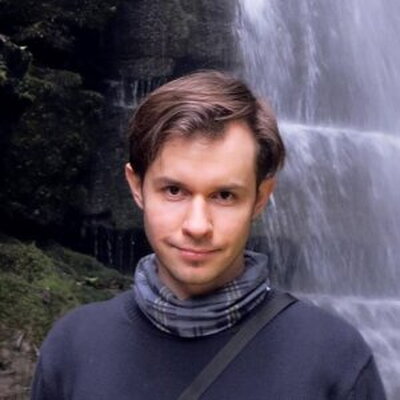Alumni from the CEAPS/EALC have been very successful, enriching both academic institutions and industrial communities and giving back to their alma mater. Click the links below to read more of their stories.

Mark Frank, East Asian Languages and Cultures (Ph.D. 2020)
2020-2021 The Council on East Asian Studies (CEAS) Postdoctoral Fellow in the Environmental Humanities at Yale University
-
Could you tell us about yourself?
My name is Mark Frank, and I’m a historian of China in a world context. I just finished my Ph.D. in East Asian Languages and Cultures at UIUC in August, and this year I’m a postdoctoral associate in the Environmental Humanities of East Asia at Yale University.
-
Why did you want to major in EALC and CEAPS?
My dad is a professional linguist and I was actually a linguistics major at the University of North Carolina, so my junior year I studied abroad in Beijing because I wanted to learn a non-Indo-European language. But after a couple of months in Beijing, I realized that I was even more interested in Chinese culture and history than I was in the language. Beijing was getting ready for the 2008 Beijing Olympics, and I was fascinated by everything that led up to it. Then, in 2008, a couple of shocking things happened shortly before the Olympics: there were massive protests in Lhasa and throughout greater Tibet, and there was a terrible earthquake in Wenchuan that killed over 80,000 people. Many of those people were also ethnic Tibetans. So I was interested in China, but at that point, I became more specifically interested in ethnic relations in China, and even more specifically, the history of Han-Tibetan relations in China. And that’s what I ended up studying in grad school.
-
What are the most important skills you walk away from your department with?
One thing I really appreciated about my department is that it lets me teach a lot. I got to teach three courses independently. I often hear from people who graduate from programs that they didn’t get much teaching experience, and that kind of experience is so important in the academic job market. Of course, I developed historical research and writing skills—archival research was especially thrilling. And thirdly, I had lots of changes to organize events. I sometimes assisted faculty organizers, but I also got to pioneer a couple of my own events.
-
What do you plan to contribute to your field and what do you expect to be doing ten years from now?
I hope that ten years from now I will have written two books and will be working at a school where I can teach some combination of East Asian history, environmental history, or interdisciplinary environmental humanities. My first book project is an environmental history of China’s Inner Asian frontier during the early twentieth century, and I’m planning to write a second book on the history of climatology in China. I’m very fortunate to have this time at Yale to turn my dissertation into my first book and get started on the second one. But I’m also mindful that we’re seeing a nearly unprecedented downturn in the job market and I need to be open to non-academic career paths as well.
-
Do you have any advice for our future or recent graduate according to your experience?
Most of all I would suggest bracing for a bad academic job market. There are jobs, but they’re very scarce right now. It’s important to hedge your bets and develop skills that are valued both inside and outside of academia. To name a few I’d suggest developing digital skills—web design, coding, etc.—that you can market to both digital humanities jobs and non-academic employers. It’s good to get some experience organizing: organizing conferences, talks, and other events. And I think statistical and other quantitative skills are important, and those are skills I didn’t really develop as a grad student. The good news is that people with PhDs tend to land decent jobs in some field, whether or not they stay in academia.